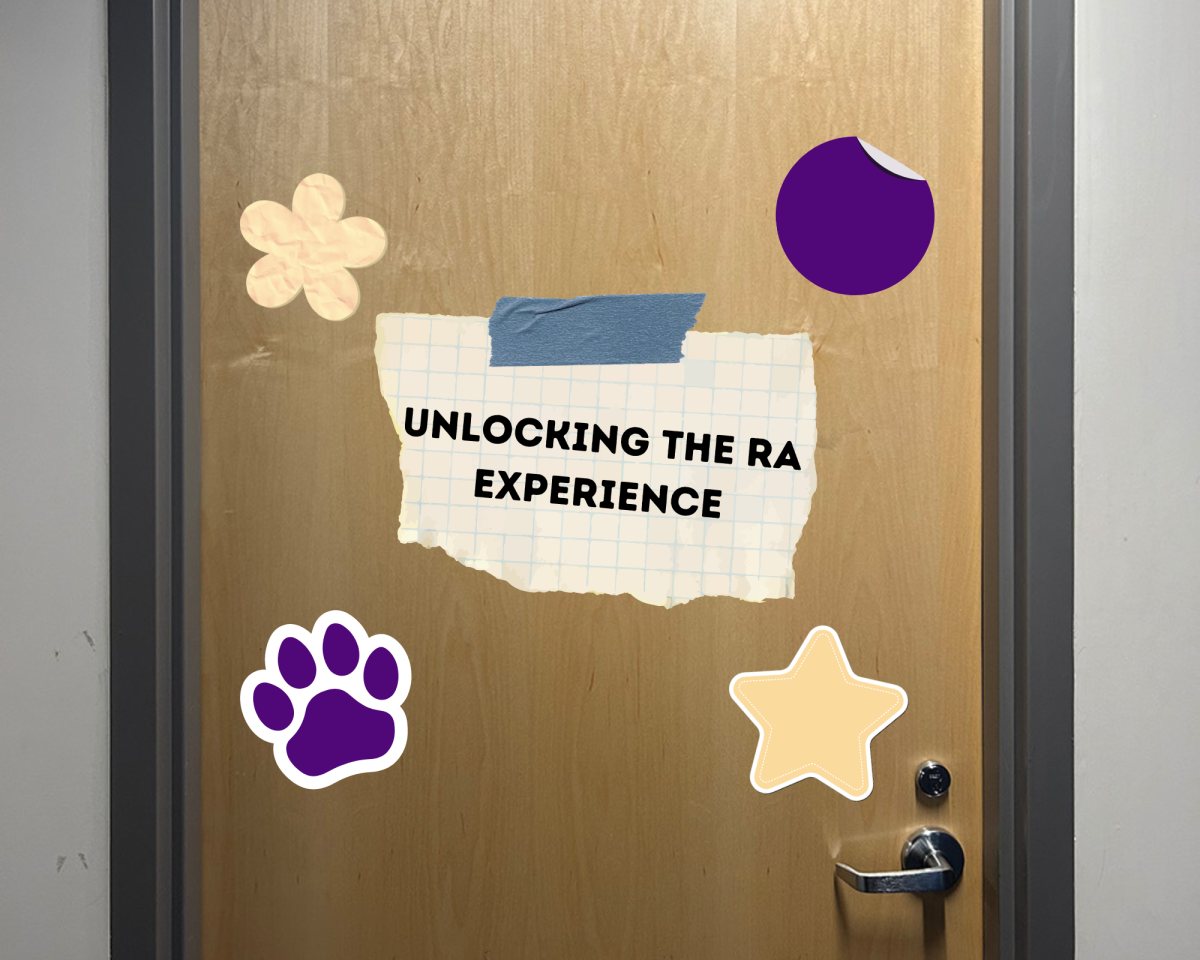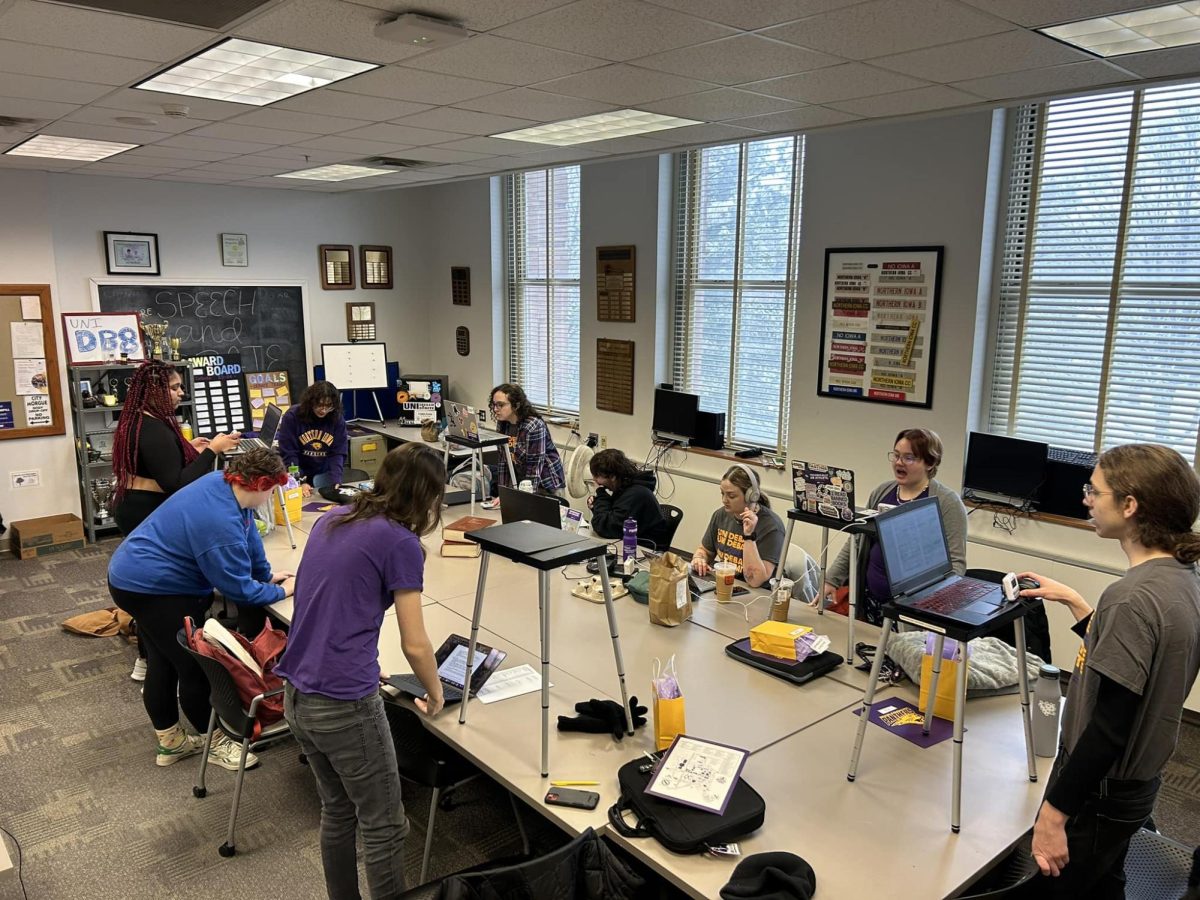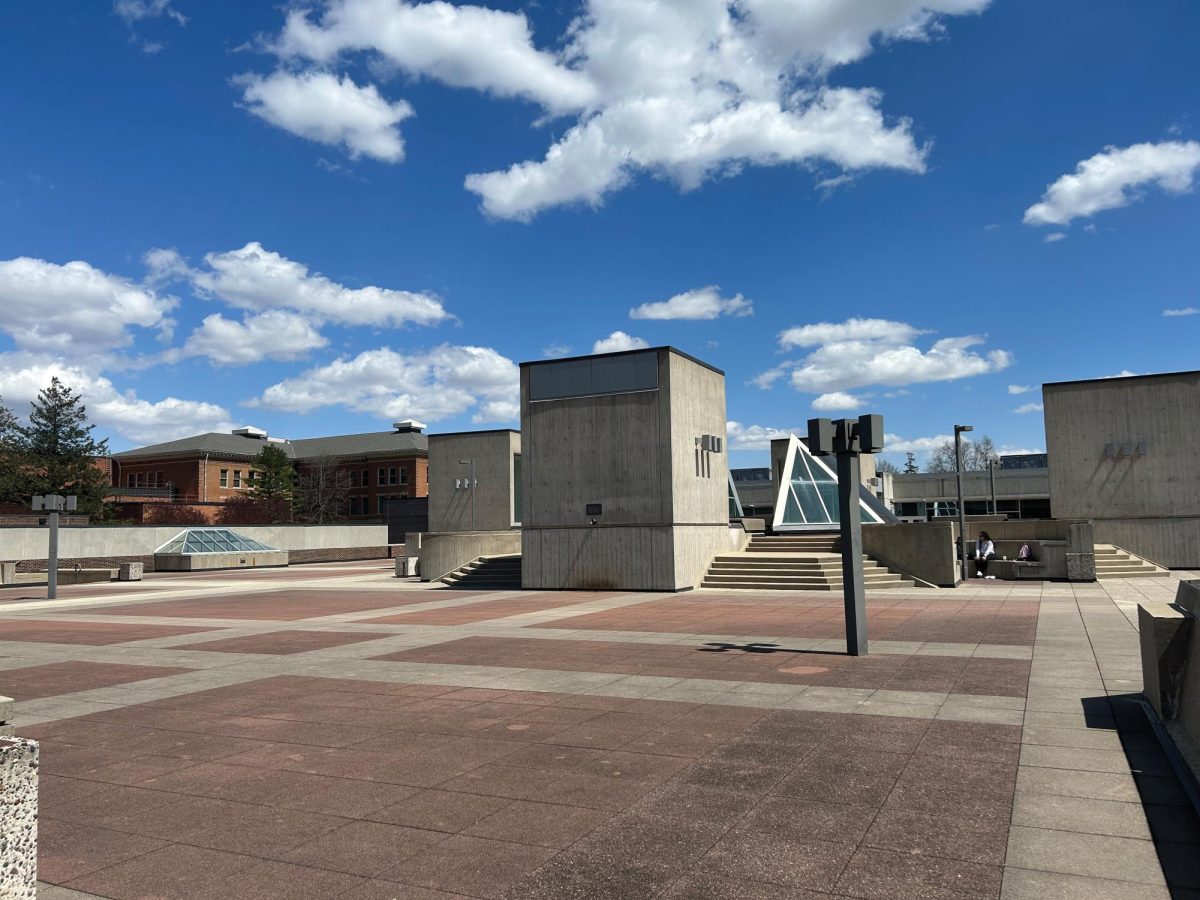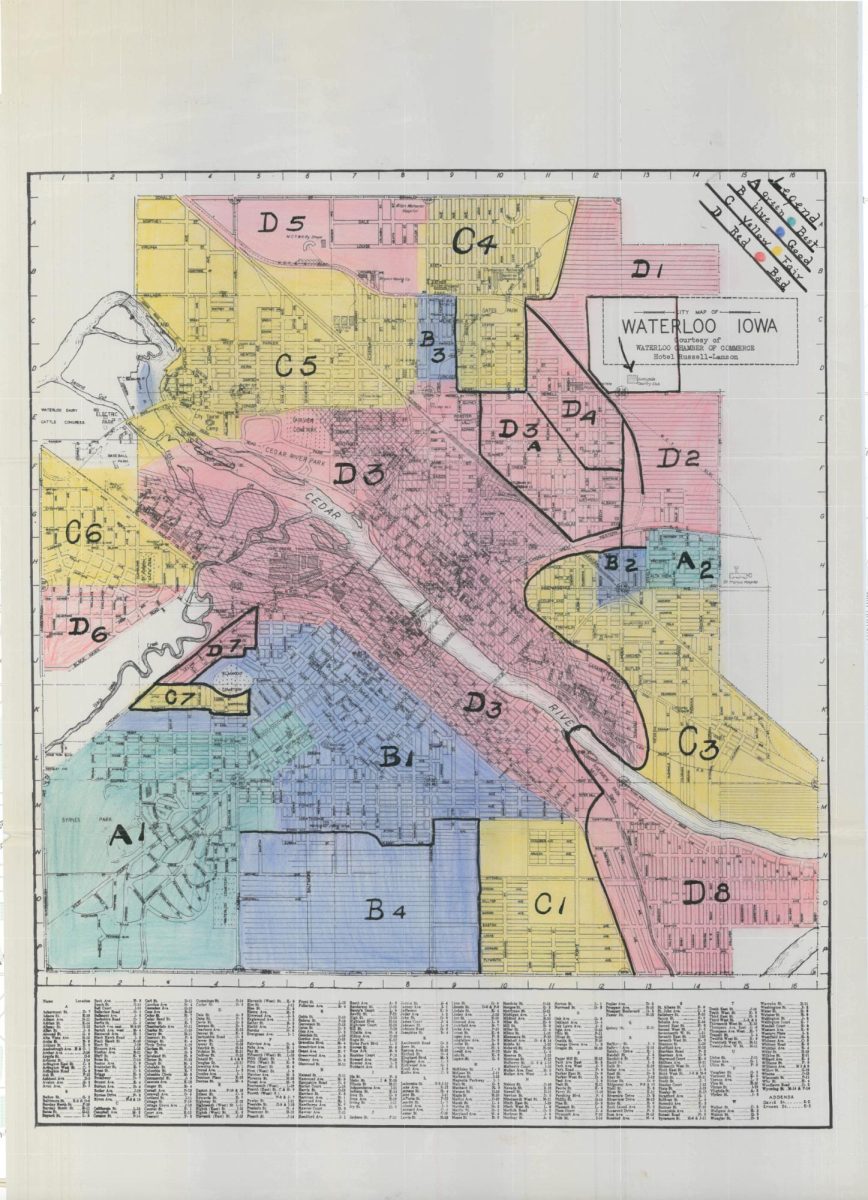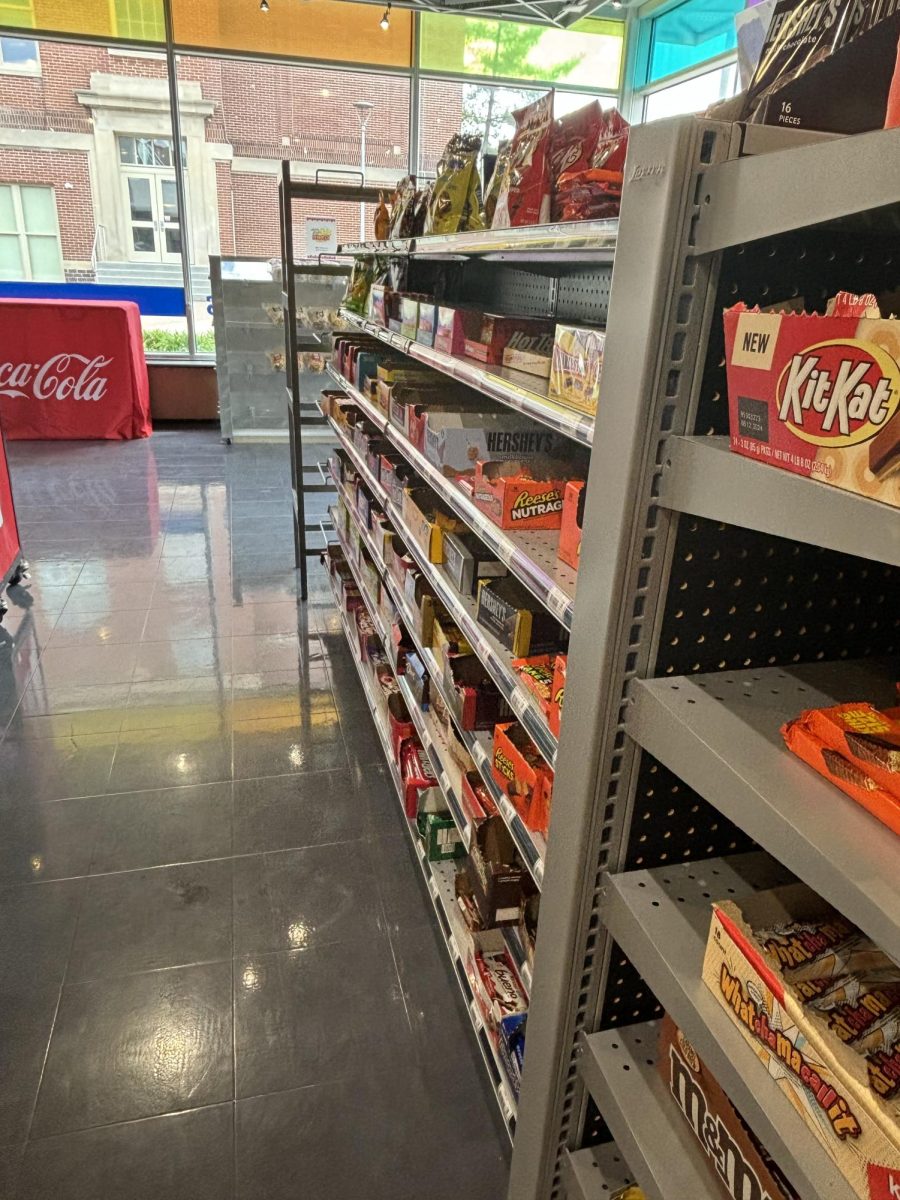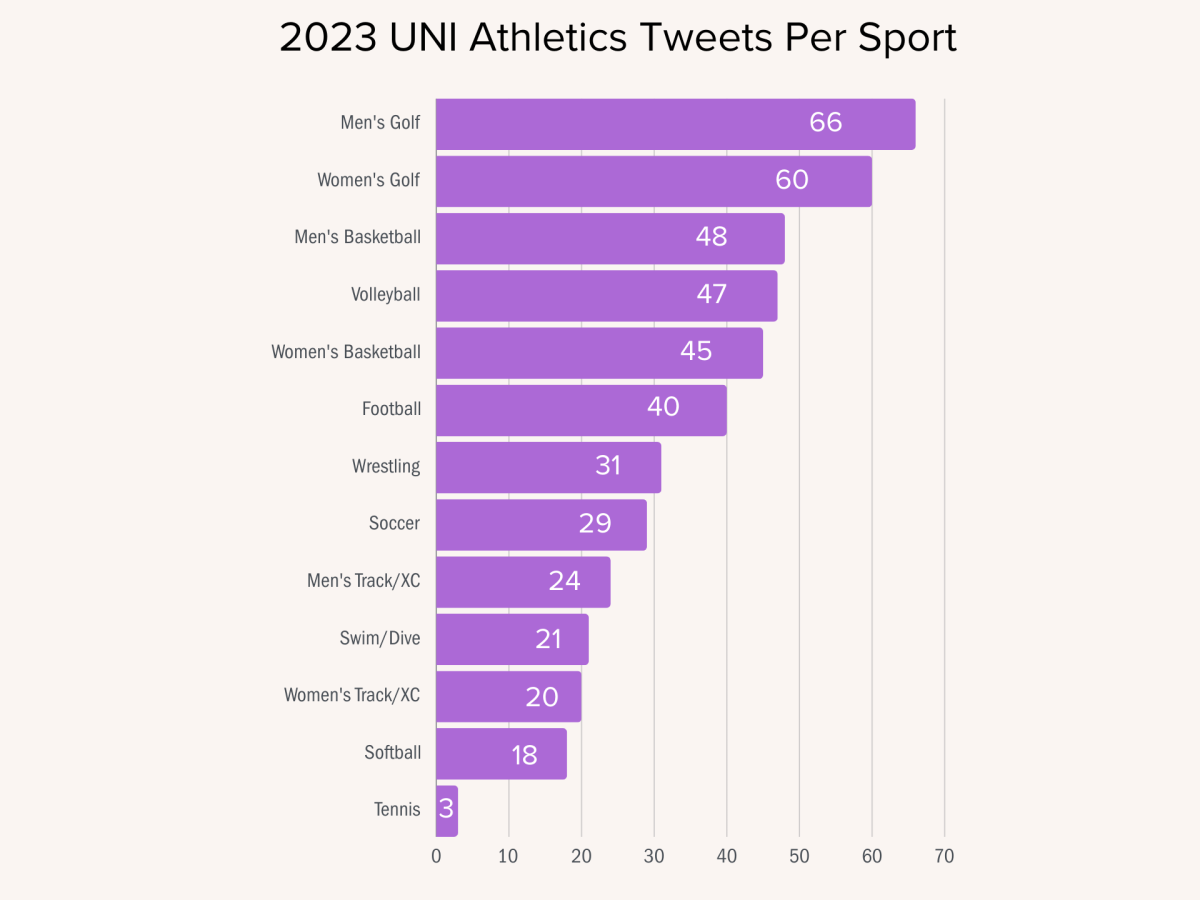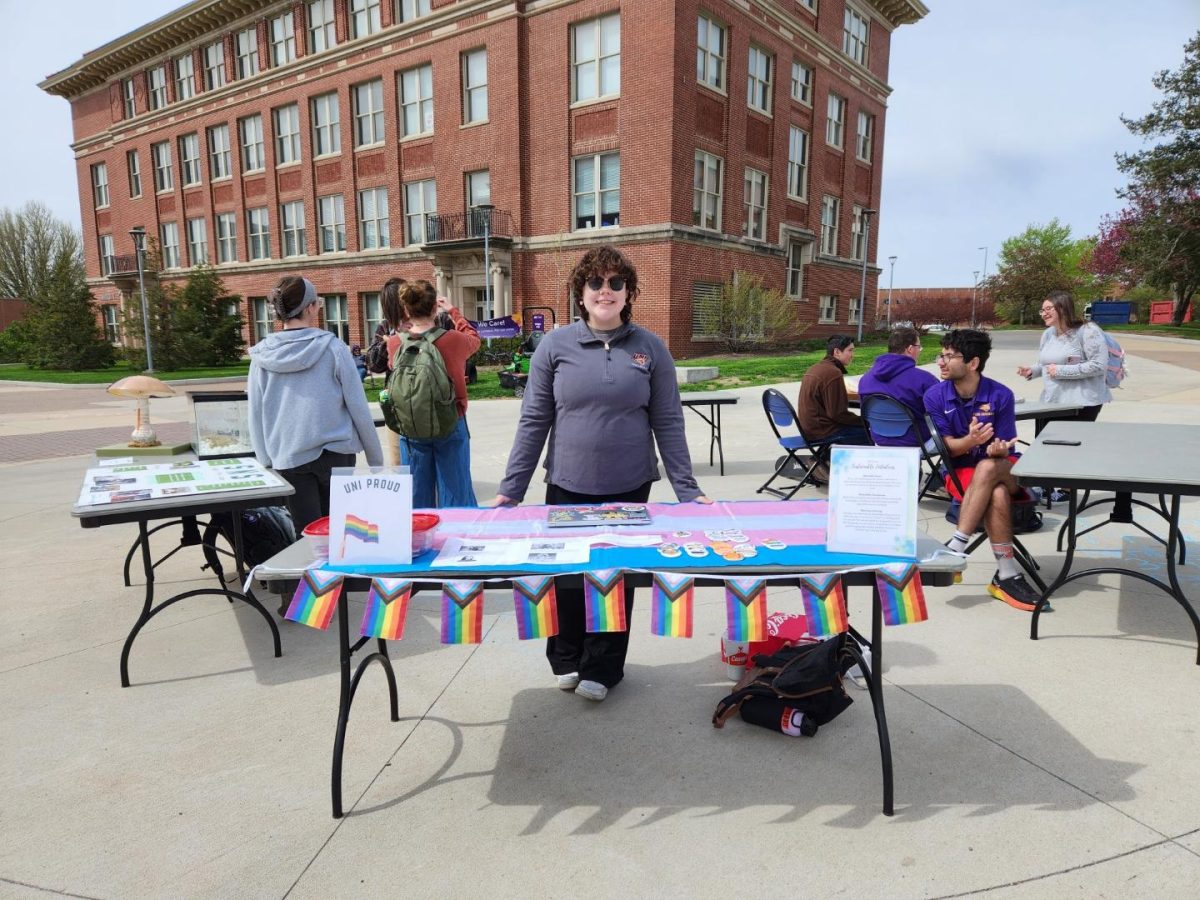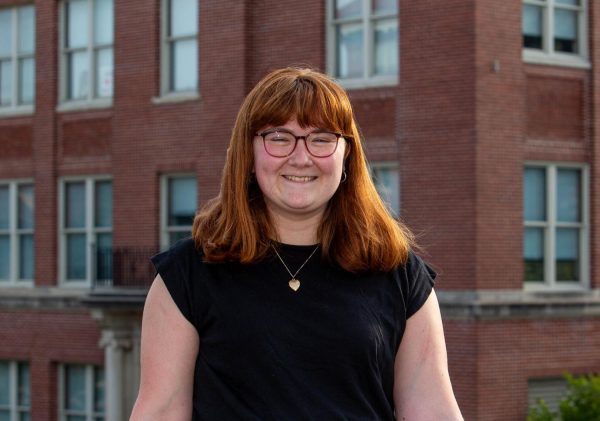Editor’s Note: This article is a follow-up to,“The R(A)eality of Being an RA” published by the Northern Iowan in 2022. One of the contributors to this article is Bailey Klinkhammer, who served as an RA from 2022-2023. Bailey helped to conduct and transcribe five interviews from both former and current RAs. The main author of this article is Northern Iowan Executive Editor Caroline Christensen.
The Northern Iowan reached out to University Housing and Dining and the UNI Counseling Center for comment. UHD replied to the Northern Iowan via email in collaboration with University Relations. The UNI Counseling Center replied to the Northern Iowan, but due to the Northern Iowan’s publishing deadline, did not have time to comment.
The Northern Iowan spoke with 13 RAs both on and off the record, three of these being former RAs. To respect the wishes of those who spoke with us, the identity of these RAs will be kept anonymous. This article discusses issues related to mental health.
For the hundreds of UNI students living in dorms across campus, resident assistants (RAs) are a crucial resource. From monitoring student safety to creating engaging hall events, RAs provide the foundation for on-campus living.
While the benefits of free room and board encourage many to apply for RA openings, several RAs we spoke with said their main motivation for applying was the urge to make a difference in the lives of fellow students.
“I had a hard time adjusting to college and I wanted to help others have a better transition,” said RA 1. “My residents motivate me to be a great RA, because they are great residents. I love knowing that I helped residents have a smooth transition to college.”
We’re not just acting as a hall monitor for a free room. Event planning, random middle of the night calls, 2 a.m. fire alarms, and having to be there for all of it. Also being your residents’ first contact for any questions they may have and needing to know where to get an answer for all of it. There’s a lot to the job people outside of it don’t see.
— RA 2
RA 2 echoed RA 1, saying they were enticed by the free room and board, but were motivated to apply in order to help others.
“I wanted to help first-year students make their adjustment to college living as easy as possible and be there for them when in need,” they said.
Meanwhile, RA 7 said they applied to be a resource for marginalized students. “Because I’ve gone through so many different experiences as a person of color, if one of my residents has any questions about anything, I can help them see that they’re not alone. I try to go above and beyond with my residents.”
However, going above and beyond can often result in stress, as many RAs said striking a balance between helping residents and creating boundaries for their own mental health can prove to be difficult.
‘Selfless to an extreme extent’
Former RA 9 said they loved their role as an RA, but at times found it difficult to strike a healthy work-life balance.
“You know, an RA position is like any job. It comes with balancing academics and your social life, but it’s a bit of a unique situation because you are working where you live. It’s just part of the job of being able to balance your priorities.”
RA 2 said they are often juggling multiple responsibilities as an RA on top of being a student, which, at times, can be overwhelming.
“We’re not just acting as a hall monitor for a free room,” they said. “Event planning, random middle of the night calls, 2 a.m. fire alarms, and having to be there for all of it. Also being your residents’ first contact for any questions they may have and needing to know where to get an answer for all of it. There’s a lot to the job people outside of it don’t see.”
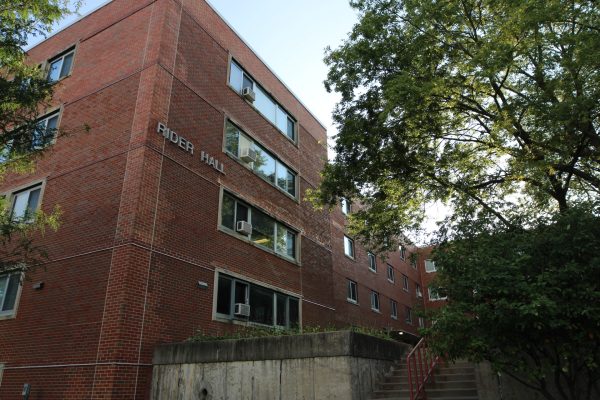
Former RA 5 said dealing with “chaotic situations” was a part of the job, but they did not mind it.
“There’s definitely times where I’ve been overwhelmed, but I would never look at that as a negative experience because I enjoy being in a very chaotic atmosphere,” they said. “I’d probably say I’d be up sometimes at like 4 a.m. dealing with situations. In an instance like that, I was drained but I was running on adrenaline so it was fine.”
Additionally, RAs are often the first line of defense when it comes to assisting students with mental health crises.
RA 8 said, “As RAs, when someone needs a wellness check, we’re the ones typically responsible for making that connection and sometimes it’s very jarring and very heavy. It makes you feel a little pit in your stomach. Because at the end of the day, when you’re doing a wellness check on someone, it’s usually because they’re at risk to themselves.”
Former RA 5 said being a “human first” is often emphasized by UHD to help RAs create healthy boundaries.
“The people that generally take on the RA position, or the people that are willing to be selfless to an extreme extent, and what a lot of the management team tries to convey is that you are a human first, a student second and then an RA third.”
Erica Eischen, the Director of Housing, said RAs have access to university counseling services on campus in addition to the TELUS app. The UNI Counseling Center also has group sessions for RAs.
“Resident Assistants are students first and foremost. There is a recognized need for anyone in a helping role to feel supported,” Eischen said. “Within UHD, each RA has a direct supervisor who serves as a resource, and they meet one on one throughout the semester. These intentionally scheduled meetings serve as a check-in to maintain communication and provide direct support to staff.”
RA 3 said that, while these resources are helpful for many RAs, they feel there is a stigma attached to using the counseling center as an RA.
“I don’t necessarily think I need it, but I know other RAs benefit from it,” They said. “All of the RAs know how crowded the counseling center is. And I know for a lot of us, there’s a stigma behind going to that resource specifically because it feels like almost taking it away from the residents.”
The Northern Iowan reached out to the UNI Counseling Center for an interview, but did not receive a response in time for publication. According to their official website, the Counseling Center has three mental health therapists on staff, and four graduate assistants.
I am so privileged to have a boss that not only cares and supports me as an employee, but they go above and beyond with being gracious and courteous and they support me as a person.
— RA 8
Other RAs said their one-on-one sessions with Residence Life Coordinators (RLCs) have been helpful in managing the stress that comes with the position.
“Those meetings can be really important for your mental health,” Former RA 5 said. “One on ones generally are quite good. They do a good job with what they have in what they know. There’s always room for improvement, but I think what they’re doing now is pretty good.”
RA 2 also said they enjoy meeting with their RLC, and find their meetings to be beneficial.
“I love my RLC. They are a phenomenal person who goes out of their way to support our building’s staff. Higher than that though, I have a hard time seeing how the central UHD office helps us.”
RA 8 also said their RLC has been a helpful resource as they manage stress.
“I am so privileged to have a boss that not only cares and supports me as an employee, but they go above and beyond with being gracious and courteous and they support me as a person.”
‘I haven’t been able to live on this wage’
One of the biggest perks for RAs is a free dorm room and all-access meal plan. According to UHD’s website, the cost of a single room in a traditional dorm is $6,448, and an all access meal plan is $4,828.
In terms of monetary compensation, RAs are paid $80 every two weeks, or $160 a month. Some RAs said this simply has not been enough to cover certain necessities.
RA 8 said, “I’m not really making any income from my job, it makes it really hard to get out of this position, because I essentially can’t save money. It’s really, it’s like, a never ending cycle.”
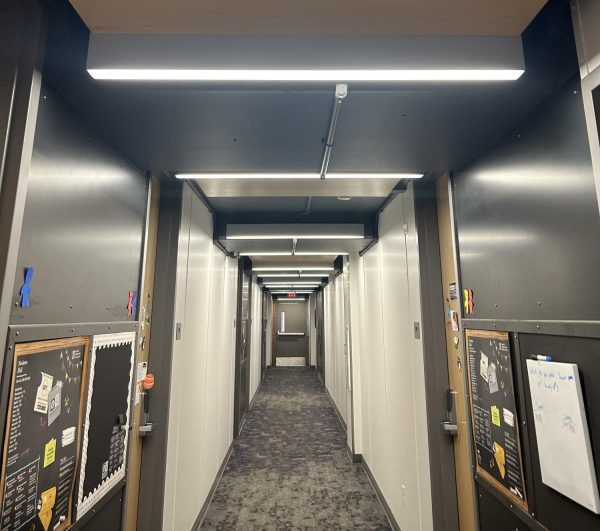
They continued, “There are weeks when I literally can’t do anything because I have to make loan payments, I have to pay for gas, I have to pay for basic living expenses, and things that you literally can’t avoid paying.”
RA 6 said, “I just got put in a situation where it was pretty financially compromising and couldn’t really see myself being able to still attend college and still meet some payments as an RA.”
Eischen said RAs have access to “all of the same resources any students who struggle to afford necessities can utilize.”
She continued, “The Panther Pantry in Maucker Union is a great resource and one in which UHD collaborates on collection drives and direct donations numerous times a year.”
Eischen also said UHD examines the compensation of each of its positions annually.
“In the last four years, the RA starting stipend and pay structure has increased twice, the most recent was for this current academic year. This is in addition to the increased costs for room and board, which are a significant part of the RA compensation package.”
Despite these pay structure increases, RA 2 said they are still struggling.
“The financial stress is horrible. College is expensive and I haven’t been able to live on this wage, but I am unable to get another job because it’s not allowed.”
RA 2 is referring to the university’s student policy 3.19, section D, which states, “Students employed by the University are limited generally to working 20 hours per week during the semester.” The policy continues, specifically citing RAs. It states they are “not eligible to work in a student hourly position during the fall or spring semesters.”
UHD’s policy additionally limits RAs’ activities such as clubs, organizations or off-campus employment to 10 hours or less per week. According to Eischen, the policy is intended to assist students with creating manageable schedules.
“This policy is in place to provide balance and guidance, while acknowledging the limitations of how much is reasonable for a student to do or manage,” Eischen said.
Former RA 6 acknowledged this policy has good intentions, but in their experience they found it to have the opposite effect. Former RA 6 lived in ROTH, and while the university provided them with a meal plan, they had to walk about a mile or drive back and forth from the dining centers to eat. Additionally, RA 6 said they had to pay for their own parking pass at the beginning of the year, which was around $103.
“$80 every two weeks was barely covering my gas at that moment. I just got put in a situation where it was pretty financially compromising and I couldn’t really see myself being able to still attend college and still meet some payments as an RA.”
While the RA job is advertised as a 20 hour work week, several RAs said the amount of hours they work depends on the week – it could be more or less. RA 10 said they feel like they have to constantly be “on” as an RA regardless of working hours.
“They present it as this is a part time job where you’ll only be working 20 hours a week, but really you’re an RA 24/7,” They said. “No matter what people try to tell you, even if you take your name tag off at the end of the day, you’re still an RA and people recognize you on your floor as someone that is there to help them. But there would be nights where I genuinely can’t deal with anything.”
‘You never really stop being an RA’
One of the biggest adjustments RAs said they have to face is working in their place of residence.
RA 4 said living in their place of work can take a toll on their mental well-being.
“You live in a kind of a fishbowl. You’re being watched all the time by your residents,” they said. “They see you as a role model, and you want them to respect you. But at the same time, if you make a mistake, people are going to see it.”
RA 3 also said it can be taxing having to constantly put on a brave face for their residents.
“I feel like there’s added pressure to always be 100% in your community even though you might only have to offer 50% or 20%. Even if it’s 3 a.m. and I need to use the bathroom, it still feels like I’m being watched. It’s a lot of amazing responsibility to be able to be a leader, but on the flip side, it’s just that much more massive responsibility that you feel.”
RA 10 had a similar experience to RA 3, saying “You never really stopped being an RA. Like you’re never not working.”
To alleviate stress, RAs are allotted 12 nights away per semester. Outside of these 12 nights, RAs say that responsibilities still weigh heavily. RA 6 told the Northern Iowan that on-call shifts in some buildings can last more than 48 hours. Additionally, RAs are required to make “door decs” for each of their residents on a schedule and must make an attempt to contact every resident. If no contact is made on the first attempt, RAs must attempt to make contact up to two additional times. In some residence halls, RAs have upwards of 50 residents.
“It can definitely be overwhelming at times,” RA 4 said. “My first year I was so overwhelmed with all the new information I was getting during the training period. At one point I needed to make door decs for my residents, and it is very silly looking back, but I was just scrolling through Cricut trying to find any possible inspiration for a door dec, I started crying because I was so overwhelmed by everything.”
RA 4 said their second year as an RA has been less overwhelming, and they love interacting with their residents on a daily basis.
Similarly, RA 2 said they enjoy being a resource for students, but sometimes struggle with the responsibility.
“A lot of time residents view you as their only resource, which means they bring a lot of stuff to you and, while I love to help, I am also a full-time student and am going through my own things,” they said. “During the first few weeks of Fall, there were a lot of complaints about the heat and, though I was living in the same conditions as everybody else, some residents acted like I was better off.”
Eischen said UHD is “continually seeking feedback” to improve RA experience every year from “current student staff either directly through assessment of our training practices, or through one on one meetings with their supervisor. That feedback is utilized to make improvements and adjustments to the RA experience from year to year.”
‘I’ve dealt with really random shit’
As part of the position, all RAs are trained prior to the beginning of the school year. According to Eischen, UHD provides training for RAs a few weeks before the beginning of the fall semester, and supplemental training is provided throughout the academic year via staff meetings.
I don’t think anything can adequately prepare you for the RA role. Nothing can cover the myriad of situations like you can find yourself in your role. But, I think they did a good job. They can’t cover everything.
— RA 5
“Training is designed to provide and develop the skills necessary to perform the role,” Eischen said. “This includes topics such as conflict mediation, navigating student campus resources, learning about campus resources, confrontation of policy violations and triage of students in crisis.”
RA 9 said they think UHD has made many positive and “improved training significantly.”
“Housing does a great job of supporting RAs, and they’ve really taken the feedback to heart that they received from RAs a couple years ago,” they said. “UHD is continuously improving their ability to train and support staff. I think resources on campus can improve to better meet the needs of students and RAs.”
Many RAs said they enjoyed hearing from former RAs about certain situations they may deal with, however former RA 5 said it is almost impossible to be fully ready for the role.
“I don’t think anything can adequately prepare you for the RA role,” They said. “Nothing can cover the myriad of situations like you can find yourself in your role. But, I think they did a good job. They can’t cover everything.”
One concern RA 1 expressed was with Behind Closed Doors training (BCDs), in which people will act out or role play situations RAs may encounter. These situations range from simple confrontations to suicidal ideation training.
“BCDs training was something I was not mentally prepared for,” they said. “Seeing leaders pretend to be mentally ill and suicidal is something I don’t agree with, even for training purposes. It feels like a mockery of people who actually struggle with those issues.”
One suggestion several RAs made was allowing for full transparency about the role in both the interview process and training.
RA 3 said, “I think a complete rundown of the responsibilities and the potential trauma that you could get from the job is important to cover. There were quite a few folks in my building that did not fully know what they were signing into.”
They continued, “We are told by UHD coordinators and supervisors that when talking to potentially new RAs we should do our best to highlight the good aspects and not try to ‘only tell the horror stories,’ although learning about some of the worse incidents could have properly prepared me for potential situations I would be signing myself up for. This year, I’ve dealt with really random shit.”
Speaking Publicly
Nick Rafanello, director of UHD, said as part of training, they share with student staff their policy in regards to speaking with the press.
“We share with student staff that they can always speak about their personal experience(s), however, they should not speak on behalf of the department or the University,” Rafanello said. “We encourage staff to provide prefatory statements that recognize they are not authorized to speak on behalf of UNI Housing & Dining and that any statements made are solely their personal opinion. Any requests regarding the department or an incident within the department should be directed to Annie Karr and/or University Relations.”
In October 2023, the editorial staff at the Northern Iowan began to reach out to RAs in an effort to create a follow up to the 2022 article. The editorial staff was in the beginning stages of interviewing and contacting RAs when the first RA interviewed contacted the editorial staff requesting their interview be struck from the record.
In March 2024, an anonymous RA alleged that a Residence Life Coordinator demanded the RA retract their statement from the record after learning about their participation.
‘RAs are human beings’
Ultimately, while a big part of an RAs job is to enforce university policy, many RAs said their goal is not to be the “fun police.”
RA 7 said, “I think a lot of residents have it in their mind that we’re out to get them. But in reality, that’s not it at all. That’s actually my least favorite part of the job when I have to knock on a door and be like, ‘Excuse me, you shouldn’t be doing this.’”
RA 3 added, “I’m not a cop. I don’t care what you’re doing really, on your own personal time. I believe students should be treated like adults who all have that autonomy. But if there’s an emergency, please come to us because we’re trained to be the first ones to respond.”
Former RA 6 said while they were always there to help, it is important for residents to keep in mind “RAs are human beings.”
“It just seems like a lot of people don’t realize that RAs have a whole other life outside of just living in the building,” they said.
Former RA 5 explained,“It’s not for everyone. But there’s a lot of fun to it, as well as a lot of not fun aspects. You just have to kind of pick what you want out of it.”



